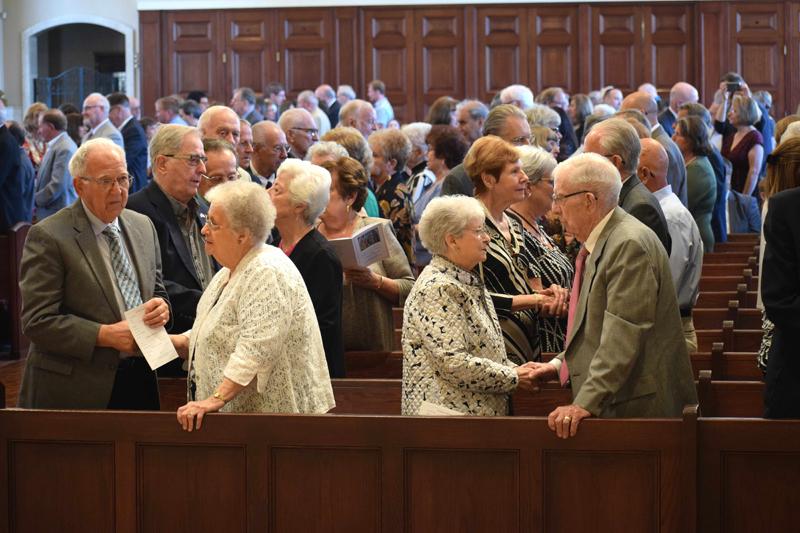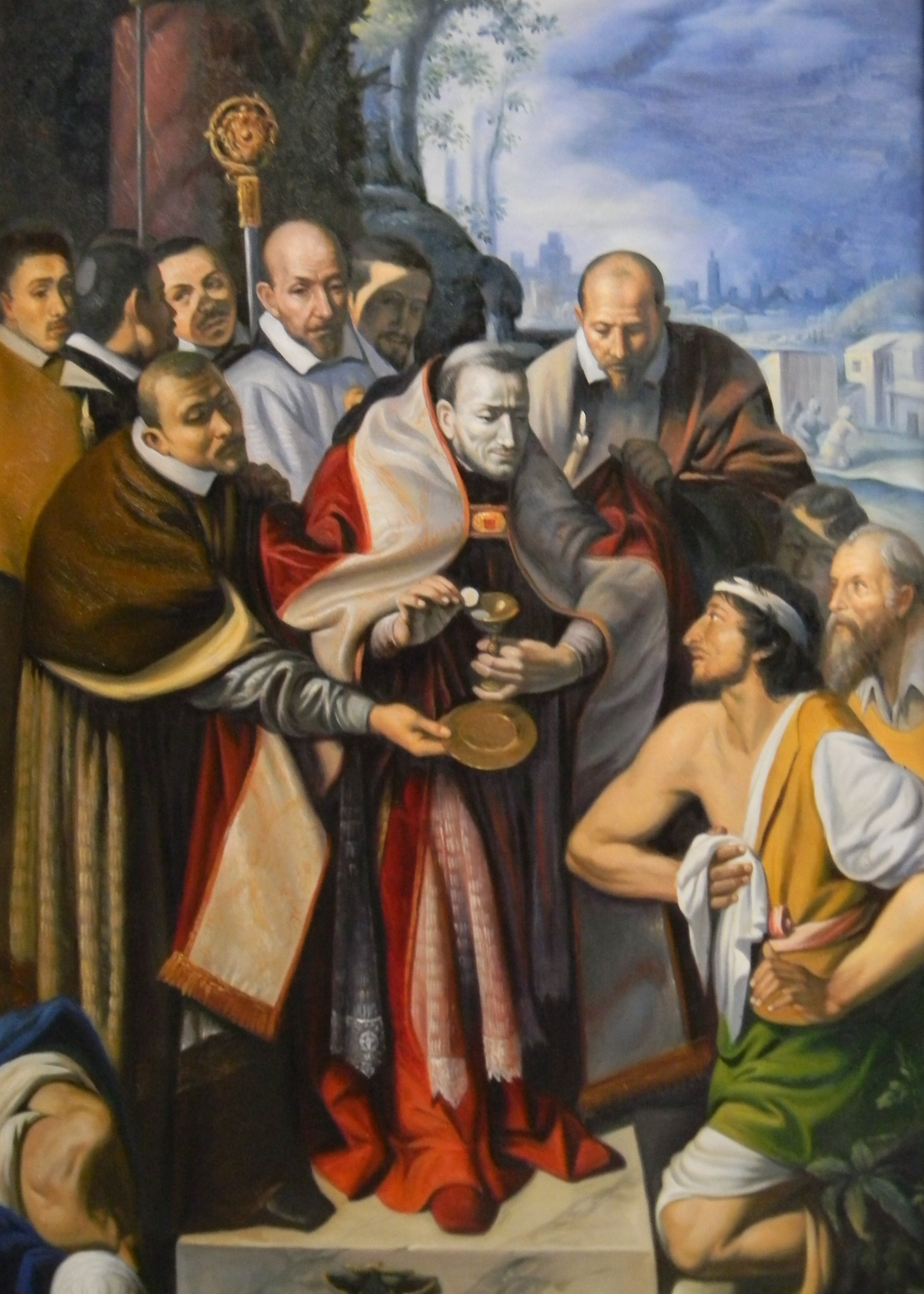Today, the Church celebrates the Solemnity of Christ the King, the last Sunday of the liturgical year.
In the first reading, David is a shepherd and anointed as a king. God made a covenant with David, in which He promised, a future messianic king. It was fulfilled when the Angel Gabriel announced the birth of Jesus to the Blessed Virgin. “He will be great and will be called Son of the Most High, and the Lord God will give him the throne of David his father, and he will rule over the house of Jacob forever, and of his kingdom there will be no end." Jesus is the King of Kings, and the Good Shepherd, who laid down His life for His Sheep, so that His kingdom could come here on earth as it is in heaven.
When we think of a king, we think of his authority and how his subjects show respect and reverence to Him. A king has power to rule his kingdom.
An ordinary king is to be treated with honor and respect. We see this in King Charles, who replaced his mother, the Queen of England.
Suppose a citizen of the king would walk up to him and spit in his face, what do you think would happen to him? Or what if someone began cursing at the king? What do you think the king’s attendants would do? Rather, then bowing before the king, as people were obliged to do, what if someone were to mock the king, by pretending to kneel before the him. Or what if someone were to slap a king in his face, what do you think would happen to the man?
If a king is treated disrespectfully, the king or his guards ordinarily would have the person arrested or even killed.
In the 2 book of Samuel (16:13), Shemei threw rocks and tossed dirt at King David and cursed at him. One of his attendants with David said, “Let me go and lop off his head for cursing my lord and king.” So if anyone treated a king with disrespect, he would certainly pay the price.
Jesus is the King of Kings and Lord of Lords. He is the king of heaven and earth. And this is what happened to Jesus. The night He was taken captive, a man spit in his face. Another slapped Jesus. Soldiers later mocked Our Lord, by pretending to kneel before Him. They put a robe around him, placed a stick in His hand, pretending it to be a scepter, and on His Sacred Head, they did not place a royal golden crown, but rather, a crown of thorns.
In the Gospel today, it states the rulers sneered at Jesus, saying, “He saved others, let Him save Himself, if He is the chosen one, the Christ of God.” The Gospel said, “even the soldiers jeered at Him.” They said, “If you are the King of Jews, save yourself.” The inscription Pilate placed above the head of Jesus, on the Cross, testified as to why Jesus was being crucified. It said, “This is the King of the Jews.”
The good thief is the only one who defended Our Lord, who said, “Have you no fear of God, for you are subject to the same condemnation? And indeed, we have been condemned justly, for the sentence we received corresponds to our crimes, but this man has done nothing criminal.” Then he acknowledged Jesus is a king, saying, “Jesus, remember me when you come into your kingdom.”
When anyone comes into the presence of a king, they dress up. They wear their best clothes out of respect for the dignity of Jesus, whose house we enter. We shouldn’t wear t-shirts and shorts during Mass or Eucharistic Adoration or really anytime we come inside the church because this is God’s house. This is His temple.
Thanks be to God, in our parish we don’t have a problem with modesty. In some parishes, pastors struggle to warn young ladies to not wear low cut tops or short shorts or tight clothes. Girls shouldn’t unveil anything sacred. Men and boys, could be tempted in ways women don’t know or understand. Girls should be modest at all times, including sports activities.
The Holy of Holies was in the Jewish temple. It was veiled as a sign of respect for the sacred presence of God. When the tabernacle is opened, you see two white cloths hanging at the opening. There in the tabernacle is a veil that covers the presence of Jesus in the tabernacle. Women and girls veil themselves because their bodies are sacred and should not be revealed in public.
It is becoming more popular that women and girls are now returning to wearing chapel veils to humble themselves before the presence of God in the church.
Out of reverence and respect toward Jesus in the Blessed Sacrament, truly present in the tabernacle, when we come to church and leave the church, we genuflect and then we go to our pew and we kneel and bow our head in prayer before the golden door containing the Eucharist, because as Catholics, we are giving homage the King of heaven and earth in the most Blessed Sacrament.
At Mass, we kneel at the moment bread and wine are changed into the body and blood of Jesus. At the words of the priest, “This is my body”, and “This is my blood.”, Jesus will come down from heaven on the altar. We kneel because Jesus, who is God, and who is a divine King comes down at that moment.
When we come forward to receive Holy Communion, the Church requires we show reverence before receiving Holy Communion. In the US, the bishops ask us to bow our head. There are some who make the sign of the cross or genuflect or kneel before receiving Holy Communion. Minimally, we should at least bow before receiving Communion. How beautiful that altar rails are being re-install and parishioners are now able to once again kneel to receive Holy Communion.
It is especially reverent to receive Our Eucharistic King on the tongue, as this is the manner the Church desires. However, we are permitted to receive on the hand. But if we do, after the Host is placed in our hand, we should look for Sacred Particles and consume them, less they fall to the ground. As your priest, I strongly recommend receiving on the tongue, which safer because the Host is less apt to fall, and no particles fall to the ground when receiving on the tongue.
Our heart is the palace of the King of Heaven. And in order to keep our palace presentable, we need to regularly keep it clean, by going to confession at least monthly.
If we were to receive Jesus in Holy Communion, in the state of mortal sin, or if we receive the Eucharist without fasting before receiving the Eucharist, we commit a sacrilegious communion, which is another mortal sin.
We are not permitted to receive Holy Communion if we break the one hour fast. Chewing gum, eating candy, drinking coffee or tea will break the one hour fast and we are not permitted to receive the Eucharist, if its been less than one hour before Communion. If we eat something accidentally, its not sinful, but we are still not permitted to receive Communion after we just ate or drank something, other than water or medicine, except for diabetics, who if their sugar drops suddenly, the can take orange juice or sweets, and that’s when food becomes medicine and is permissible.
If we commit a sacrilegious communion, we do as the soldiers did to Jesus, we, so to speak, re-crucify Him, we nail His hands and feet to the Cross, we jeer at Him and mock Him and treat Him in a vile manner. That’s why its called a sacrilegious communion. Just as the body of Jesus was profaned on the Cross, His blessed body in the Eucharist is profaned when we commit a sacrilegious communion.
But oh, how merciful is our King! All we need to do is come to Him in confession, first, before receiving Communion, and He will wash away all our sins, bestow His mercy on us, and therefore prepare our heart to receive Him worthily. He will then pour abundant graces and gifts into our hearts.
It is so wonderful to see many in our parish spending time with Jesus in the Most Blessed Sacrament during your Holy Hour. I would also like to encourage you to bring your children with you to adore Jesus, our Eucharistic king.
Its so beautiful to see many from our parish give Jesus the double knee genuflection when you come to do your Holy Hour. When we adore Jesus, we are coming before the king and what does a king do, when He is treated with respect and reverence? He lavishes His gifts upon His subjects. Jesus pours spiritual gifts into our hearts because we are faithful in our commitment to be with Him. He gives us graces and gives because we come to Him, not demanding what we want, but we ask out of humility from the giver of every good gift. Don’t be afraid to ask the king for anything. Be bold and ask for more than you can imagine. As God and king, Jesus can give you anything, if its in accord with His holy will.
Advent begins next Sunday. Everyone should go to Confession before Christmas. Just as the wise men, fell on their knees in adoration in the presence of the newborn king, so we will do the same, if we come to receive His infinite mercy in confession and have our heart (our own temple) prepared for Him, who loves us.
Then when Christmas comes, we will sing with the angels, O come let us adore Him, O come let us adore Him, Christ the Lord. May the Virgin Mary, the Queen of heaven and earth, help all of us to grow in love and respect for Her Son, the King of the universe.











